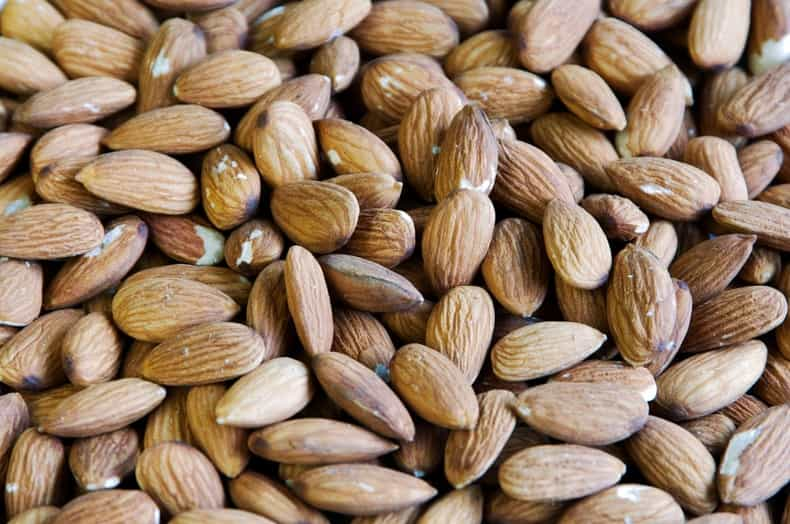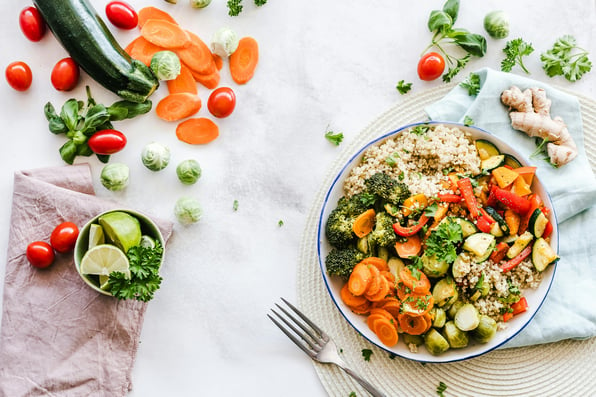Healthy sleep is crucial for your physical well-being. For example, research shows that sleeping for less than six hours a night increases the risk of heart disease by almost 300%! In addition, sleep is so crucial as it also affects your mental well-being and performance at work and is included in every holistic employee wellness program.
All nations around the world have traditions that specific foods promote sleep. In many Western countries, cow's milk has traditionally been considered a relaxing beverage with a sleep-promoting capacity. Other foods are herbal products, such as chamomile tea and specific fruits.
But is this true?
Foods to eat before sleep
The first studies to examine the sleep-promoting effects of a specific food were conducted in the 1970s when Horlicks tested a malted milk drink. Since then, other foods, nutrients, and diets have been tested for their sleep-inducing fame.
Nowadays, we know that what you eat affects your sleep!
1. Milk and dairy
The first studies on whether foods affect sleep showed that milk consumed ~30 minutes before bedtime improves sleep quality, and these findings were supported by further research. Parameters improved were increased sleep time and efficiency and decreased sleep latency.
The aforementioned positive effects have been attributed to an amino acid (a protein compound) called tryptophan and to naturally occurring melatonin in the milk, a hormone produced by the human body to induce sleep onset.
As to the fact that it is considered that apart from milk, dairy products such as yogurt or cheese promote good sleep quality, recent data from various studies indicate that they are effective in
improving sleep quality when they are consumed as part of well-balanced diets.
2. Kiwi fruits
The consumption of 2 kiwifruits/day, 1 hour before bedtime for four weeks, significantly improved sleep duration and efficiency, wake after sleep onset, and sleep onset latency in adults with sleep disturbances.
It has been hypothesized that the high antioxidant capacity and serotonin and folate content of kiwifruit may contribute to the observed sleep benefits of their consumption.
3. Cherries
As for cherries, various cultivars and both the juice and the whole fruit consumption have been shown to have beneficial effects on sleep parameters. Specifically, the consumption of 1 glass of tart cherry juice in the morning and night-time for two weeks was associated with a significant reduction in insomnia severity and wake after sleep onset in adults with chronic insomnia and improved total sleep time and efficacy in healthy adults.
When consumed as a lunch and dinner dessert for three days, 200 gr of various charry cultivars increased total sleep time. Some species also improved night-time awakening and sleep onset latency. Differences observed between cultivars may be attributed to the different melatonin concentrations of the cherry cultivars.

4. Almonds
A significant reduction in insomnia was found in a study where ten almonds were consumed daily for two weeks. Animal studies have shown that sweet almonds have sedative impacts, which may be the reason why almonds help you sleep.
5. Pistachios
6. Wheat
7. Barley
8. Oats
Pistachios, wheat, barley, and oats have been found to have a relatively high content of melatonin.
Melatonin is a hormone known to induce the onset of sleep in humans, and it is believed that eating melatonin-rich foods could assist sleep.
Whereas to have the effect, you need to consume such foods close to bedtime.
Foods, diets, or eating habits that improve sleep
1. Plant-based foods (vegetables, fruits, legumes)
Apart from foods eaten before bed, the overall diet has been shown to affect sleep. Α prudent dietary pattern characterized by a high intake of vegetables, fruits, and legumes has been found to positively affect sleep onset compared with a Western dietary pattern characterized by a high intake of processed meat, snacks, red meat, and takeaway foods.
Similarly, a study found that a high intake of vegetables had a significant association with overall good sleep quality. At the same time, that of confectionary, energy drinks, or sugar-sweetened beverages was significantly related to poor sleep quality.
These findings were also found from another study which showed that low fiber (a nutrient found in plant-based products) and high saturated fat (fat found in animal products), and sugar intake is associated with lighter, less restorative sleep with more arousals.
2. Fish vs. meat
Another study showed that individuals consuming three times per week fish for six months reported better sleep latency than those consuming meat at the same frequency.
3. Dark fruits & water
In another study, soy sauce and alcohol were associated with poor sleep quality, whereas dark fruits and water were related to good sleep quality.
4. Mediterranean diet
Studies in middle and older-aged people have shown that a Mediterranean diet positively affected sleep quality. Older adults who frequently consumed many vegetables, whole grains, legumes, fruits, olive oil, and seafood slept better than their counterparts who did not, indicating that the overall diet may affect sleep quality.
5. Having breakfast and a regular meal pattern
Eating habits such as skipping breakfast and irregular eating have been associated with worse sleep quality and shorter sleep duration.
How much sleep do I need, and how do I know I am getting enough of it?
Sleep is a physical and mental resting state in which a person becomes relatively inactive and unaware of their environment. The human body strengthens your immune system, restores energy, and consolidates learning and memory during sleep. Achieving good sleep quality is necessary for overall health and well-being.
The amount of sleep a person needs varies depending on several factors, including age. Most adults need about 7 to 9 hours of sleep daily, which increases for infants, children, and adolescents. For older adults, there is a decline in night-time sleep duration. However, this is paralleled by an increase in napping during the daytime.
Duration is not the only feature to ensure sound sleep. Good sleep quality is achieved through low sleep latency, a low number of awakenings >5 min, low waking after sleep onset, and good sleep efficiency. With age, sleep latency, sleep arousals, and awakenings increase.
Overall, you have adequate sleep when there is no daytime sleepiness or dysfunction.
Nowadays, there is convincing evidence that sleep deprivation affects individuals' dietary habits, often leading to increased likeness and consumption of energy-dense foods instead of healthy ones, leading to a lower quality diet. However, recent research data are accumulating in support of the effect of diet to sleep quality.
Nutrients that affect sleep quality
Carbohydrates and sleep
A high or low carbohydrate intake has been significantly associated with poor sleep quality. Regarding high carbohydrate intake, the quality rather than the quantity seemed to be more critical, with frequent consumption (≥1 time/month) of energy drinks and sugar-sweetened beverages being associated with poor sleep quality.
Protein and sleep
Low (<16% of energy from protein) and high protein intake (>19% of energy from protein) are associated with poor sleep quality in men. However, these data come from observational studies, thus not saying whether this diet led to poor sleep quality or the other way around.
What to eat or not to eat for better sleep
So, if you want to improve your sleep:
- Have breakfast and follow a regular meal pattern.
- Drink water to get hydrated.
- Improve your overall diet quality by having fruits, vegetables, legumes, whole wheat products, and fish.
- Avoid meat and sugar-containing foods.
- Try almonds, pistachios, milk, cherries, or kiwifruits as a before-sleep snack.
Sweet Dreams!
Originally published March 21, 2022 - 10:37 AM, updated September 3, 2024
Sources
- Bennington, J.H.; Craig Heller, H. Restoration of brain energy metabolism as the function of sleep. Progress in neurobiology 1995; 45:347–360.
- Benjamin JS, Hooge ITC, Benedict C, Smeets PAM, van der Laan LN. The influence of acute partial sleep deprivation on liking, choosing, and consuming high- and low-energy foods. Food Quality and Preference 2021; 88:104074.
- Cao Y, Taylor AW, Wittert G, Adams R, Shi Z. Dietary patterns and sleep parameters in a cohort of community-dwelling Australian men. Asia Pacific journal of clinical nutrition 2017; 26.6:1158-1169.
- Chaput JP. Sleep patterns, diet quality, and energy balance. Physiology & behavior 2014; 134:86-91.
- España RA, Scammell TE. Sleep neurobiology from a clinical perspective. Sleep 2011; 34.7:845-858.
- Garrido M, Paredes SD, Cubero J, et al. Jerte Valley cherry-enriched diets improve nocturnal rest and increase 6-sulfatoxymelatonin and total antioxidant capacity in the urine of middle-aged and elderly humans. Journals of Gerontology Series A: Biomedical Sciences and Medical Sciences 2010; 65:909–14.
- Ghafarzadeh J, Sadeghniiat-Haghighi K, Sadeghpour O, Akbarpour S, Amini-Behbahani F. Investigating the Prevalence of Sleep Disorder and the Impact of Sweet Almond on the Quality of Sleep in Students of Tehran, Iran. Iran J Public Health 2019;48(6):1149-1154.
- Gómez-González B, Domínguez-Salazar E, Hurtado-Alvarado G, et al. Role of sleep in the regulation of the immune system and the pituitary hormones. Annals of the New York Academy of Sciences 2012; 1261:97–106.
- Hansen AL, Dahl L, Olson G, et al. Fish consumption, sleep, daily functioning, and heart rate variability. Journal of Clinical Sleep Medicine 2014; 10(5):567-75.
- Hirshkowitz M, Whiton K, Albert SM, et al. National Sleep Foundation's sleep time duration recommendations: methodology and results in summary. Sleep health 2015; 1:40–43.
- Hornung OP, Danker-Hopfe H, Heuser I. Age-related changes in sleep and memory: commonalities and interrelationships. Experimental gerontology 2005; 40:279–85.
- Howatson G, Bell PG, Tallent J, Middleton B, McHugh MP, Ellis J. Effect of tart cherry juice (Prunus cerasus) on melatonin levels and enhanced sleep quality. European journal of nutrition 2012; 51:909–16.
- Jones BE. Neurobiology of waking and sleeping. Handbook of clinical neurology 2011; 98:131–49.
- Katagiri R, Asakura K, Kobayashi S, Suga H, Sasaki S and the Three-generation Study of Women on Diets and Health Study Group. Low Intake of vegetables, high intake of confectionary, and unhealthy eating habits are associated with poor sleep quality among middle-aged female Japanese workers. Journal of occupational health 2014; 56:359–368.
- Knowlden AP, Hackman CL, Sharma M. Systematic review of dietary interventions targeting sleep behavior. The Journal of Alternative and Complementary Medicine 2016; 22(5):349-362.
- Kong F, Li H, Xu G, Ying Y, Gong Q, Zhao J, et al. Association of dietary behaviors and sleep quality: results from the adults' chronic diseases and risk factors survey of 2015 in Ningbo, China. International journal of environmental research and public health 2018; 15(9):1823.
- Komada Y, Okajima I, Kuwata T. The Effects of Milk and Dairy Products on Sleep: A Systematic Review. International Journal of Environmental Research and Public Health 2020; 17:9440.
- Lin HH, Tsai PS, Fang SC, Liu JF. Effect of kiwifruit consumption on sleep quality in adults with sleep problems. Asia Pacific journal of clinical nutrition 2011; 20:169–74.
- Mamalaki E, Anastasiou CA, Ntanasi E, et al. Associations between the Mediterranean diet and sleep in older adults: Results from the Hellenic longitudinal investigation of aging and diet study. Geriatrics & Gerontology International 2018; 18:1543–1548.
- Meng X, Li Ya, Zhou Y, Gan RY, Xu DP, Li HB. Dietary Sources and Bioactivities of Melatonin. Nutrients 2017;9(4): 367.
- Morselli L, Leproult R, Balbo M, Spiegel K. Role of sleep duration in the regulation of glucose metabolism and appetite. Best practice & research Clinical endocrinology & metabolism 2010; 24: 687–702.
- Muscogiuri G, Barrea L, Aprano S, et al. on behalf of the OPERA PREVENTION Project Sleep Quality in Obesity: Does Adherence to the Mediterranean Diet Matter? Nutrients 2020; 12:1364.
- Ohayon M, Wickwire EM, Hirshkowitz M, et al. National Sleep Foundation's sleep quality recommendations: First report. Sleep Health 2017; 3:6–19.
- Peuhkuri K, Sihvola N, Korpela R. Diet promotes sleep duration and quality. Nutrition Research 2012; 32:309-319.
- Pigeon WR, Carr M, Gorman C, Perlis ML. Effects of a tart cherry juice beverage on the sleep of older adults with insomnia: a pilot study. Journal of medicinal food 2010; 13:579–583.
- Sánchez-Ortuño MM, Bélanger L, Ivers H, LeBlanc M, Morin CM. The use of natural products for sleep: a common practice? Sleep Medicine 2009; 10:982–987.
- Schönauer M. Sleep spindles: Timed for memory consolidation. Current Biology 2018; 28:R656–R658.
- St-Onge MP, Mikic A, Pietrolungo CE. Effects of diet on sleep quality. Advances in nutrition 2016; 7:938–949.
- St-Onge MP, Roberts A, Shechter A, Choudhury AR. Fiber and Saturated Fat Are Associated with Sleep Arousals and Slow Wave Sleep. Journal of Clinical Sleep Medicine 2016; 12(1):19 – 24.
- Sutanto CN, Wang MX, Tan D, Kim JE. Association of sleep quality and macronutrient distribution: a systematic review and meta-regression. Nutrients 2020; 12(1):126.
- Theorell-Haglow J, Lemming WE, Michaelsson K, Elmstahl S, Lind L, Lindberg E. Sleep duration is associated with healthy diet scores and meal patterns: results from the population-based EpiHealth study. Journal of Clinical Sleep Medicine 2020; 15:16(1)9-18.
- Watson NF, Badr MS, Belenky G, et al. Joint consensus statement of the American Academy of sleep medicine and sleep research society on the recommended amount of sleep for a healthy adult: methodology and discussion. Journal of Clinical Sleep Medicine 2015; 11:931–952.










